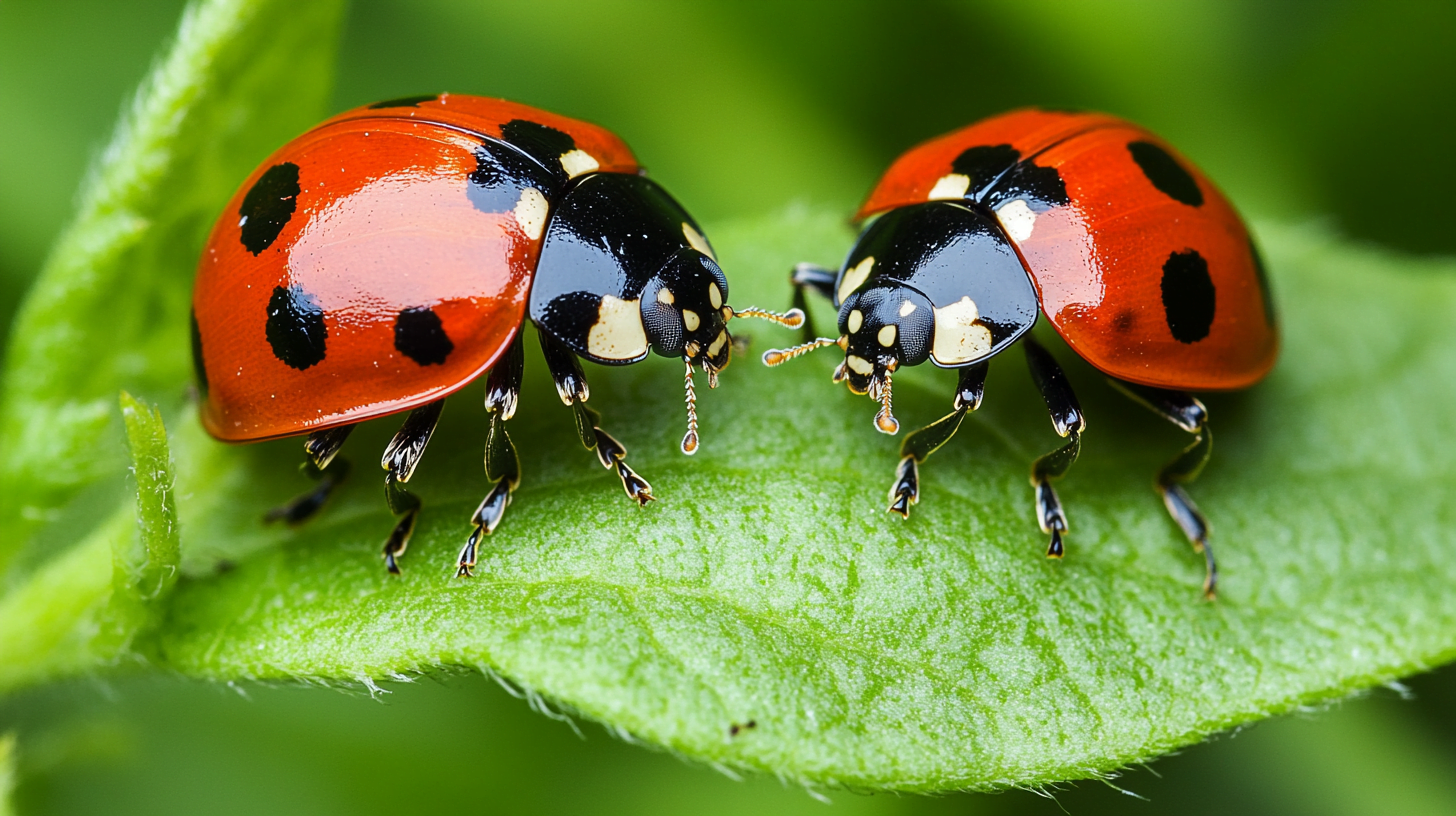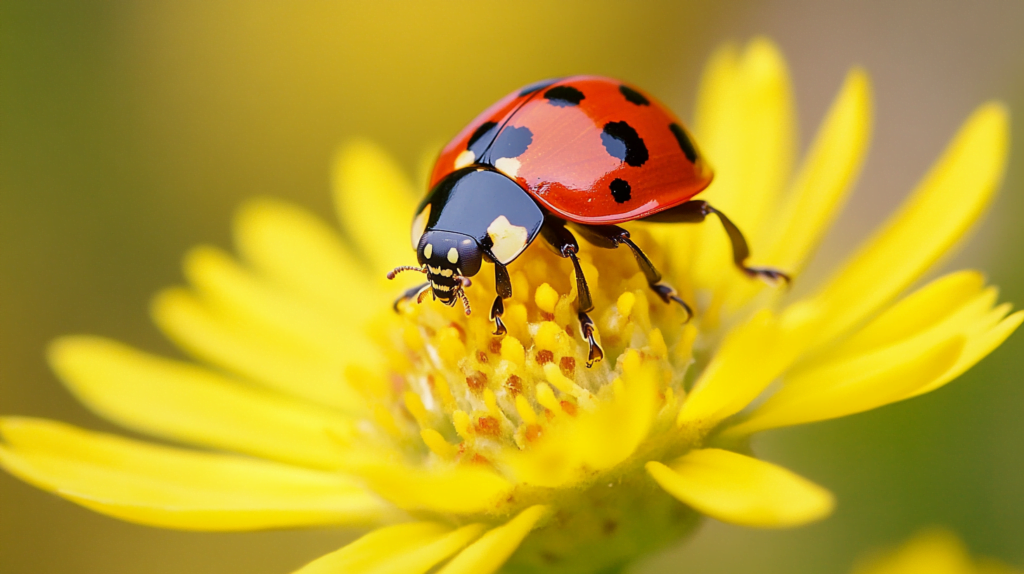Book Appointment Now
Are Ladybugs Good Luck? Exploring the Charming Myth and Reality
Discover the truth behind ladybug luck! Explore cultural beliefs, scientific benefits, and conservation efforts. Are ladybugs good luck? Find out in this comprehensive guide.

Table of Contents
Have you ever had a ladybug land on you and felt a spark of excitement? You’re not alone. These tiny, spotted creatures have long been associated with good fortune. But are ladybugs really good luck, or is it just a charming myth? Let’s dive into the fascinating world of these beloved insects and uncover the truth behind their lucky reputation.
The Origins of Ladybug Luck
The story of lucky ladybugs goes way back. In medieval Europe, farmers were plagued by crop-destroying pests. Then, seemingly out of nowhere, swarms of ladybugs appeared and devoured the pests, saving the crops. The farmers, overjoyed, called these insects “Our Lady’s beetles,” believing they were sent by the Virgin Mary. This is how ladybugs got their name and their reputation as lucky charms.
But it’s not just a European thing. Cultures around the world have their own ladybug lore:
- In Asia, ladybugs are seen as symbols of good fortune in love and marriage
- Native American folklore often portrays ladybugs as wise and benevolent creatures
- In some parts of Russia, catching a ladybug and making a wish before it flies away is thought to bring luck
The Science Behind the Luck: Are Ladybugs Actually Beneficial?
While luck might be subjective, the benefits of ladybugs are scientifically proven. These little beetles are nature’s pest control experts. A single ladybug can devour up to 5,000 aphids in its lifetime. That’s a lot of plant-destroying bugs taken care of!
Here’s a quick rundown of how ladybugs help:
- Natural Pest Control: They eat aphids, mites, and other small insects that damage crops and garden plants
- Pollination: While not as efficient as bees, ladybugs do contribute to pollination as they move from plant to plant
- Ecological Balance: By controlling pest populations, ladybugs help maintain a healthy ecosystem
Farmers and gardeners often see ladybugs as a sign of a healthy environment. So in a way, they really do bring “luck” to those tending the land.
Lucky Ladybug Superstitions and Myths
The world of ladybug superstitions is as colorful as the insects themselves. Here are some popular beliefs:
- The number of spots on a ladybug’s back is said to indicate how many months of good luck you’ll have
- If a ladybug lands on you, you should count the spots before it flies away to know how many dollars you’ll soon find
- Yellow ladybugs are thought to bring financial luck, while red ones are associated with love and romance
While these are fun to think about, remember that ladybug spots and colors are actually determined by their species and age, not by mystical forces!
Ladybugs in Pop Culture and Symbolism
Ladybugs have crawled their way into our hearts and our pop culture. They’re everywhere from children’s books to high-end fashion. The ladybug’s cheerful appearance and lucky reputation have made it a popular choice for:
- Logos and branding (think of the Ladybug tools for gardening)
- Mascots for sports teams and schools
- Designs in fashion and jewelry
Even in the digital age, ladybug emojis are often used to express good luck or send positive vibes in messages.
The Dark Side of Ladybug “Luck”
Not all that glitters is gold, and not all ladybugs are beneficial. The Asian lady beetle, an invasive species in North America, can be a nuisance. They often invade homes in large numbers and can bite (though it’s more like a pinch).
Here’s a quick comparison of beneficial ladybugs vs. the invasive Asian lady beetle:
| Characteristic | Beneficial Ladybug | Asian Lady Beetle |
|---|---|---|
| Behavior | Stays outdoors | Often invades homes |
| Bite | Rarely bites | May bite when disturbed |
| Smell | No odor | Releases unpleasant odor when threatened |
| Winter habits | Hibernates outdoors | Seeks warm indoor spaces |
So while most ladybugs are helpful garden allies, it’s good to be aware that not all “ladybugs” bring the same kind of luck!
Attracting Lucky Ladybugs to Your Garden
Want to invite some “luck” into your garden? Here are some tips to attract ladybugs:
- Plant flowers like marigolds, calendula, and cosmos
- Avoid using pesticides that can harm beneficial insects
- Provide water sources like shallow dishes or misters
- Leave some areas of your garden a bit wild – ladybugs love natural habitats
Remember, a diverse garden ecosystem is the best way to maintain a healthy ladybug population.
Ladybug Conservation: Protecting Our Lucky Charms
Believe it or not, some ladybug species are facing decline. Climate change, habitat loss, and competition from invasive species are all taking their toll. Here’s how you can help:
- Participate in citizen science projects like the Lost Ladybug Project
- Create ladybug-friendly habitats in your garden
- Educate others about the importance of these beneficial insects
By protecting ladybugs, we’re not just preserving a symbol of luck – we’re helping maintain ecological balance.
The Psychology of Luck: Why We Find Ladybugs Lucky
Our fascination with lucky ladybugs says as much about us as it does about the insects. Humans have a tendency to seek patterns and meaning in nature. When we associate positive outcomes with ladybugs, it reinforces our belief in their luck-bringing powers.
This positive association can actually be beneficial. Believing in lucky charms like ladybugs can:
- Boost confidence
- Reduce stress
- Increase optimism
So even if ladybugs don’t actually bring luck, believing they do might just make you feel luckier!

Conclusion: Ladybugs – Lucky Charms or Just Charming?
So, are ladybugs good luck? The answer isn’t black and white (or should we say, red and black?). While ladybugs may not have magical powers, they certainly bring benefits to our gardens and ecosystems. Their “luck” comes in the form of natural pest control and ecological balance.
Whether you see them as lucky charms or just charming creatures, ladybugs deserve our appreciation. Next time you spot one of these spotted friends, take a moment to appreciate the real magic they bring to our world – not through superstition, but through their important role in nature.
FAQs About Ladybug Luck
Q: Are all ladybugs lucky?
A: While all ladybugs are beneficial to the environment, the “luckiest” are the ones native to your area that help control pests naturally.
Q: What should I do if a ladybug lands on me?
A: Enjoy the moment! Some believe you should make a wish. Scientifically speaking, it’s best to let it be and fly away when it’s ready.
Q: How many spots do lucky ladybugs have?
A: The number of spots varies by species and doesn’t affect “luck”. Most common ladybugs have between 2 and 13 spots.
Q: Can keeping ladybug charms bring good fortune?
A: While there’s no scientific evidence for this, if a ladybug charm makes you feel more positive and confident, it might just bring you some good vibes!
Q: Are there any cultures where ladybugs are considered unlucky?
A: It’s rare, but in some parts of the world, large swarms of ladybugs are seen as a nuisance or a bad omen. However, this is the exception rather than the rule.
Remember, the real luck that ladybugs bring is their contribution to a healthy environment. So next time you see one, consider yourself lucky to witness nature’s little helpers in action!



